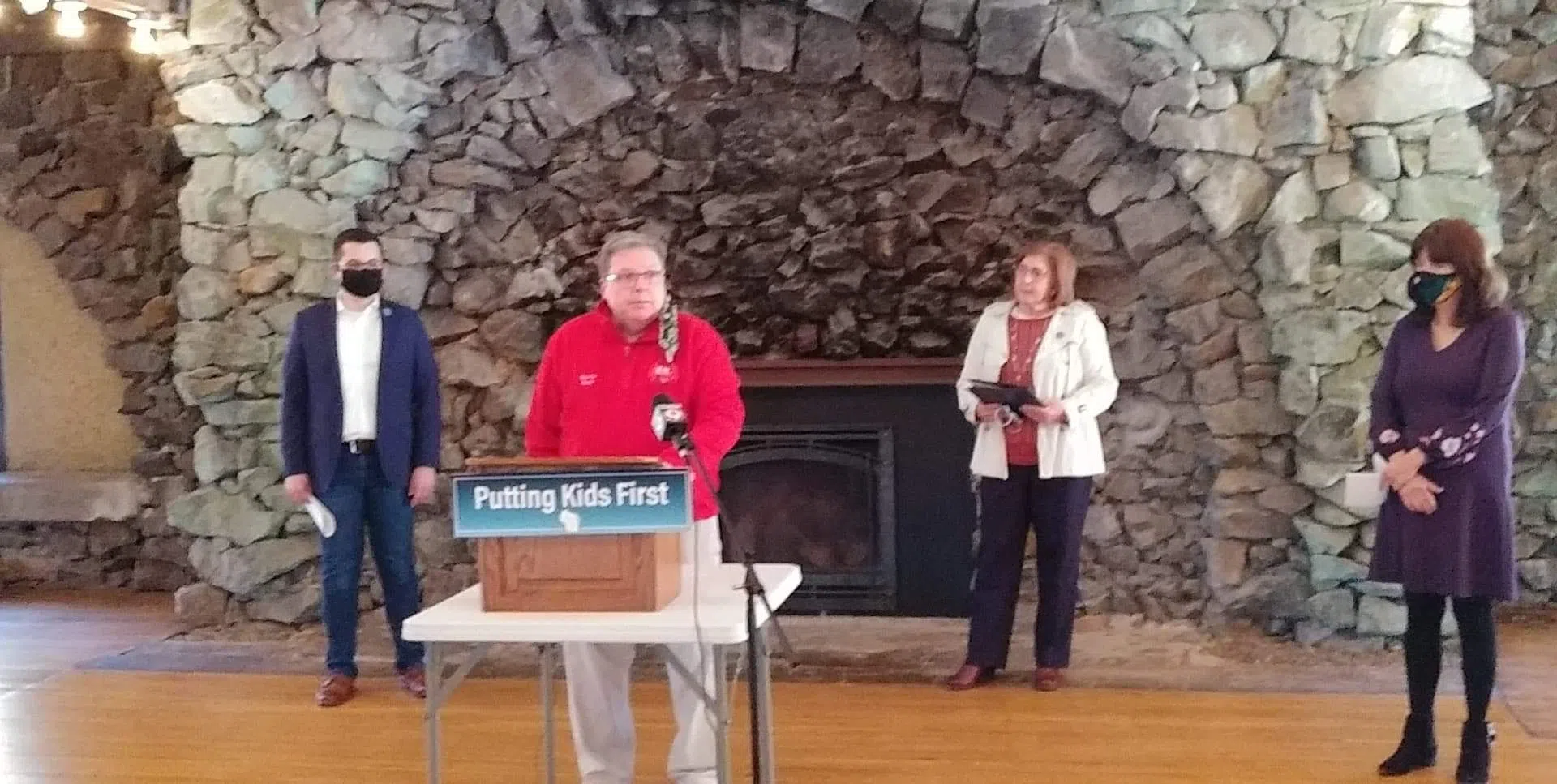ROTHSCHILD, WI (WSAU) — Assembly Republicans are calling on Governor Tony Evers to distribute some $20 million in CARES funding to rural school districts that have provided in-person instruction to students to help offset the cost of teaching students during a global pandemic.
Pat Snyder of Schofield, who represents the 85th Assembly district, says it’s not about punishing schools for not opening for in-person learning. Instead, they’d like to see those that did have some help offsetting the costs associated with doing business in a pandemic.
“We want the Governor to prioritize the school districts that have been in-person since September because of the additional costs they have had,” said Snyder. “[Those include] cleaning and staff and the other things associated with it.”
The state is currently holding over $20.8 million in emergency education relief which Snyder says would make a difference especially to rural areas where salaries and transportation take up the majority of a district’s budget.
D.C. Everest Superintendent Kristine Gilmore knows that firsthand. Her schools added more instructors to allow for smaller class sizes while also adding social workers. She says federal funding now would help save them from further cuts in the future.
“Long-range we will probably need more mental health support services. Our social workers have been out non-stop, we’re supporting a lot of families with food, increased visits to the crisis center,” she said. “We cannot continue on the way we are. We know we will have to offer more support next year, not less.”
Gilmore also says her district may look at adding alcohol and drug counselors to help students who have turned to those substances during the pandemic.
Snyder adds that negotiations are currently in the early stages so there’s no exact dollar amount that schools could expect to receive. Some of the funding may be based on the number of in-person instruction hours each school has had.
The money comes as part of last year’s CARES act. Republicans say due to the funding being distributed based on the Title 1 formula, the lion’s share of the last round went to Madison ($729/student) and Milwaukee ($3,174/student) was mid-to-smaller sized districts received as little as $77 per student.
Gilmore adds that schools can’t always rely on referendum funding to make ends meet. Especially after voters in her district recently passed a large building project referendum passed that was largely focused on upgrades and technical education, which are still happening despite the pandemic. While those aspects are important, the money does little to help make payroll.
“All of our tech ed facilities have been up and open. Our house (the district’s annual student-built Habitat for Humanity house) is nearly complete, the welding academy is continuing to go, we need to keep those things at a high level.
“Our referendum did not pay for staff, and that’s the most expensive part of what we do each day. Pay for the people. We are thankful for what we have, and this potential funding would just really help us at this time,” she added.
Snyder and Gilmore were joined at Monday’s news conference by Marshfield’s Rep. Donna Rozar and Calvin Callahan of Tomahawk. A total of 52 lawmakers signed the letter including Jim Edming, Mary Velzkowski, Scott Krug, John Spiros, Speaker Robin Vos, Majority Leader Jim Steineke, and Speaker Pro-Tempore Tyler August.
To read the full letter, click the PDF links at the top of this story.




Comments